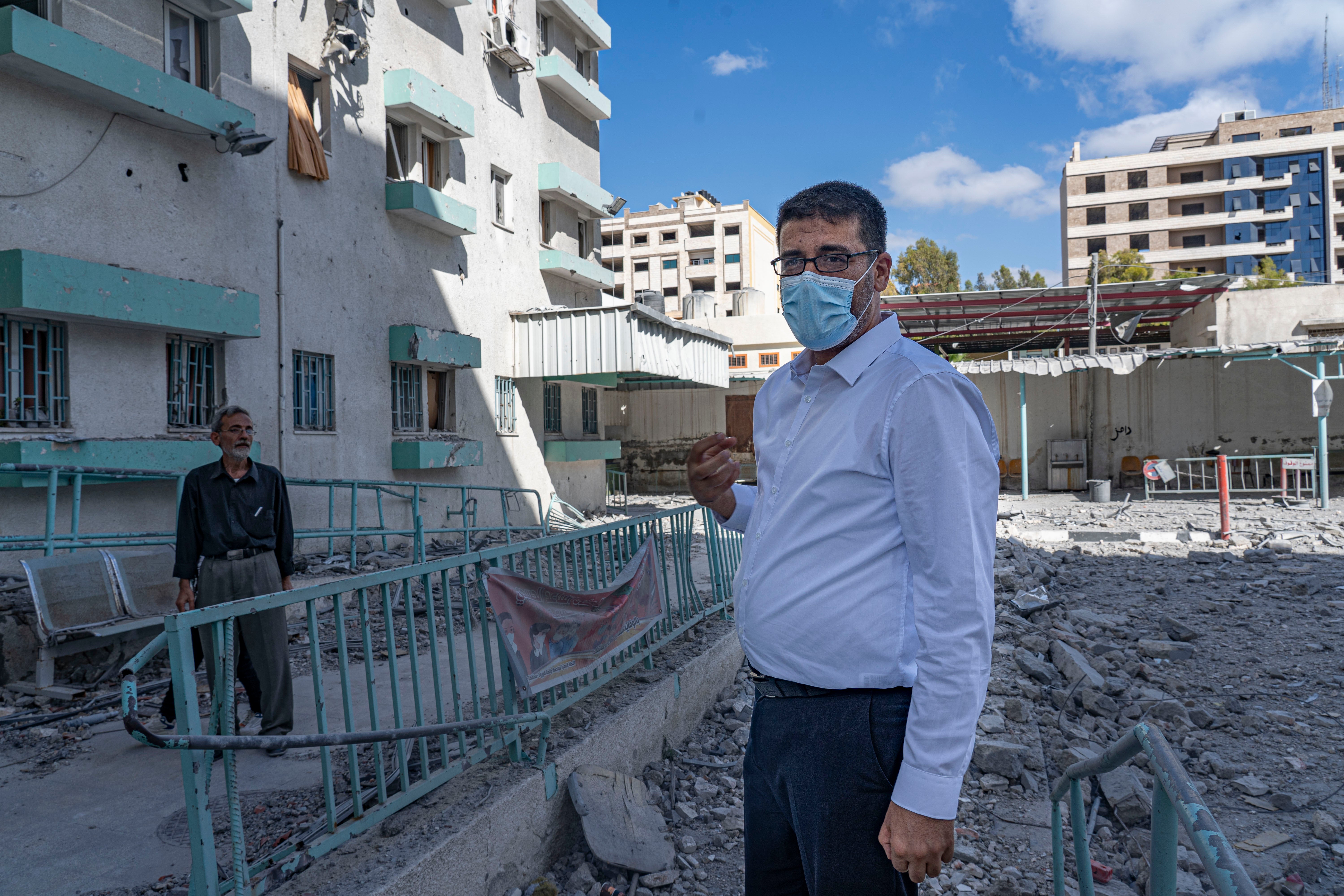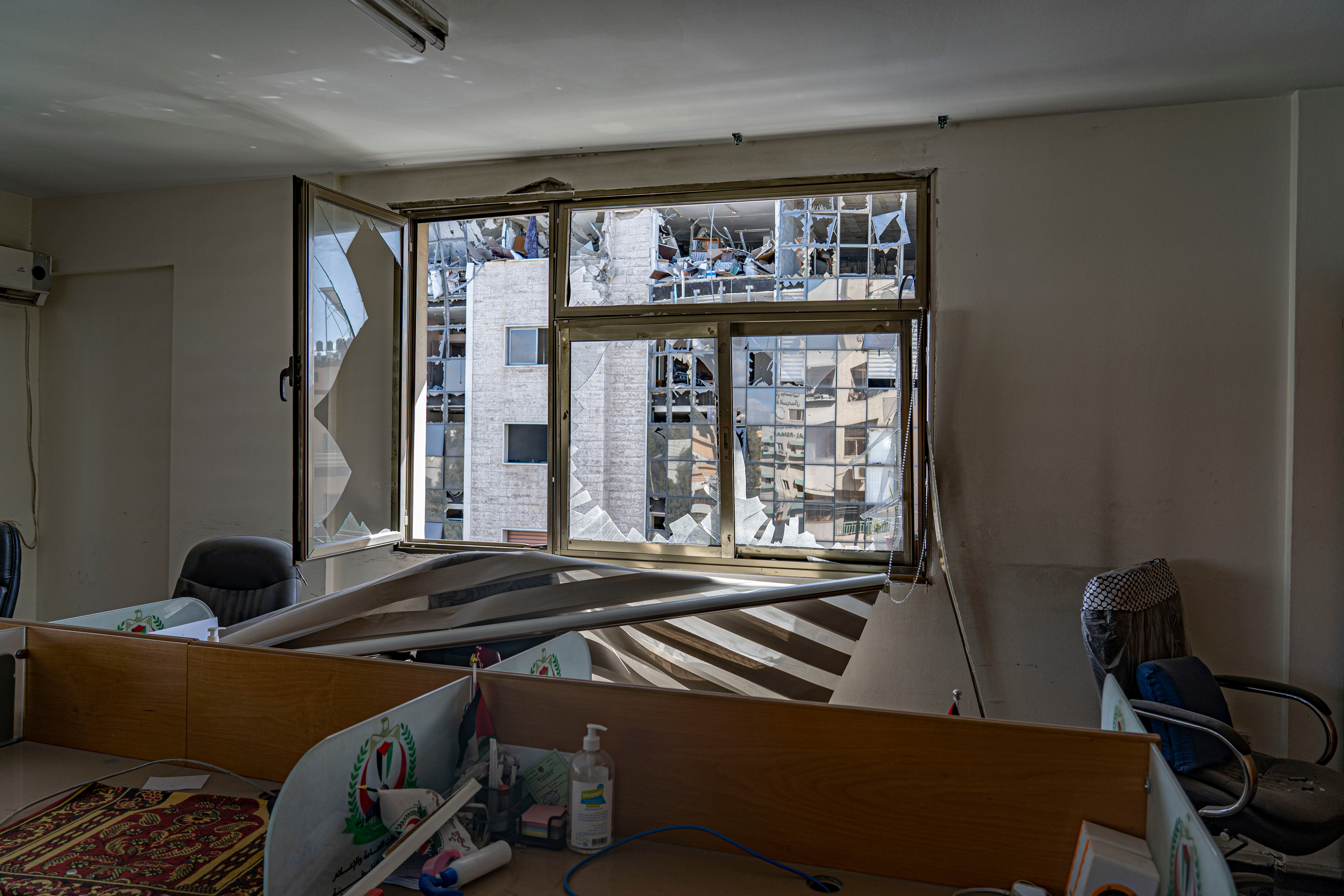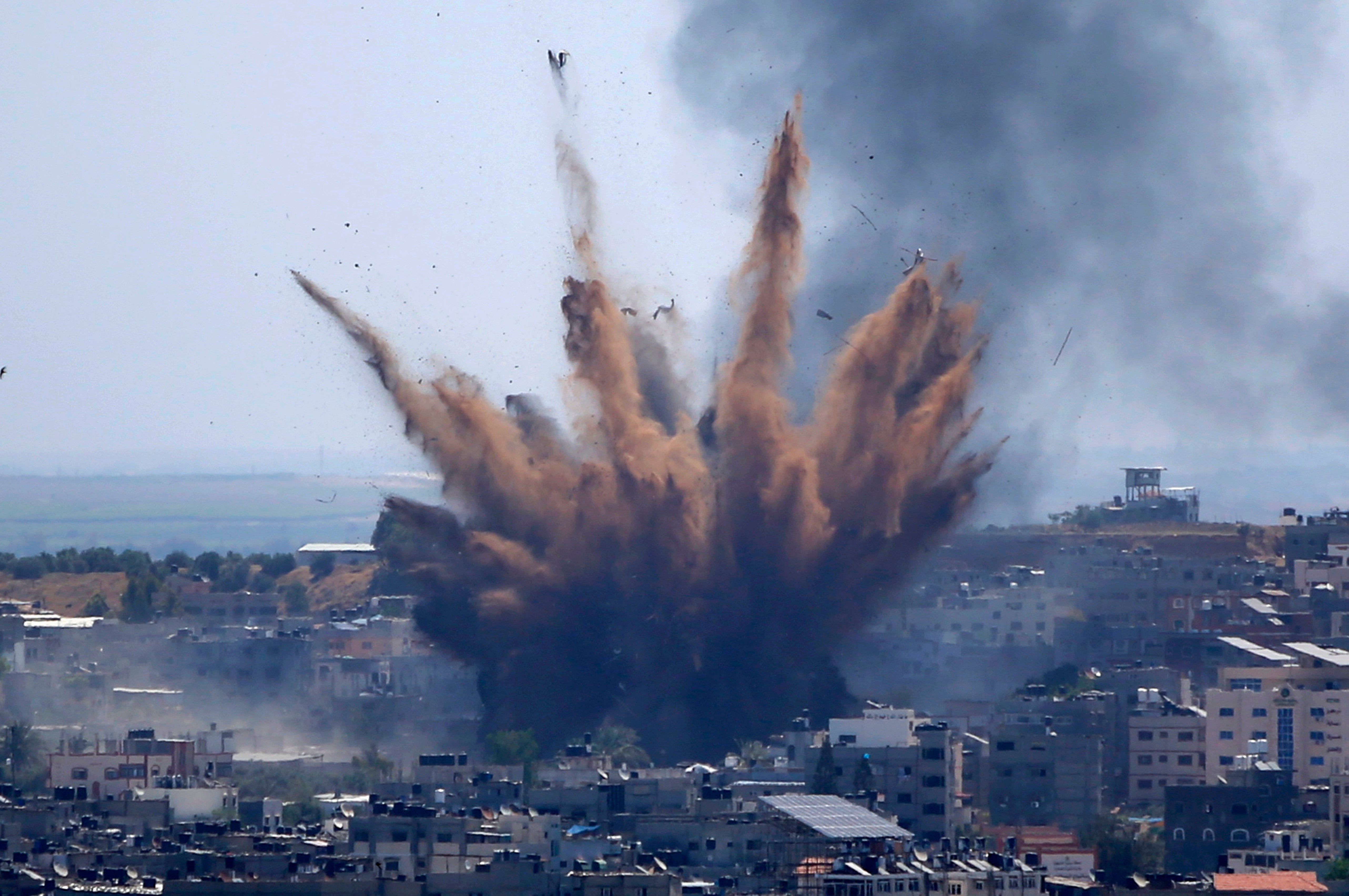After 11 days of war, Gaza’s next crisis could be the coronavirus
Densely populated, vulnerable and with a crippled healthcare system, Gaza could soon be confronted by a pandemic problem, reports Bel Trew
Your support helps us to tell the story
From reproductive rights to climate change to Big Tech, The Independent is on the ground when the story is developing. Whether it's investigating the financials of Elon Musk's pro-Trump PAC or producing our latest documentary, 'The A Word', which shines a light on the American women fighting for reproductive rights, we know how important it is to parse out the facts from the messaging.
At such a critical moment in US history, we need reporters on the ground. Your donation allows us to keep sending journalists to speak to both sides of the story.
The Independent is trusted by Americans across the entire political spectrum. And unlike many other quality news outlets, we choose not to lock Americans out of our reporting and analysis with paywalls. We believe quality journalism should be available to everyone, paid for by those who can afford it.
Your support makes all the difference.A flash and then the force of the blast wave lifts the Palestinian doctor off the ground, throws him the length of the room and slams him into a wall.
The harrowing CCTV footage captures the moment an Israeli airstrike damages the clinic housing Gaza’s only Covid-19 testing lab. Dr Majed Salah, who was giving a medical consultation by phone at the time, is seen unconscious and curled up on the floor.
His colleagues, who escaped the ferocious tornado, run for their lives. Around them, the building shudders as windows explode. Plumes of dust fill the screen.
It was 17 May, and Israeli airstrikes had smacked down the nearby top two stories of a multistorey building on Wehda street, one of Gaza’s main thoroughfares.
The strike was so intense it badly damaged the clinic housing the Covid lab, as well as the Ministry of Health offices, both of which lie opposite.
Dr Saleh was critically wounded and in intensive care for several days, according to Dr Yousef Abu Reesh, Gaza’s deputy health minister.
“We were given no warning at all,” the senior official said from his bombed-out office, which is in the damaged ministry building.

“It’s like they wanted to bring that apartment to us, to throw the concrete at us.”
Scrunching across shattered glass, masonry and office equipment, Dr Abu Reesh takes The Independent around what is left of the clinic and the ministry building.
He says the sole laboratory in Gaza that processes test results was rendered temporarily inoperable. The PCR testing machine survived the blast but had to be moved.
“It hugely impacts the work we can do in this emergency and a pandemic,” Dr Abu Reesh continues.
“Our offices – the administrative part of the ministry of health – were directly damaged and paralysed by this attack. A lot of services, like the phone consolations for people who feel it is unsafe to move from their homes, had to halt.”
Eleven days of intense fighting between Hamas militants and the Israeli military saw some of the most intense airstrikes ever recorded in Gaza, devastating swathes of the blockaded Strip, as well as an unprecedented barrage of rockets landing in Israel.
In Gaza, 248 Palestinians, including 66 children and 39 women were killed. In Israel,12 died, including two children and a soldier.
While the conflict is far shorter than previous wars in 2012 and 2014, the bombardment on both sides was among the most intense, according to UN officials. They are now warning that the subsequent humanitarian crisis caused by the fighting is also being complicated by the coronavirus pandemic.
More than 300,000 cases of the deadly disease have been recorded across the Occupied Palestinian Territory (OPT) since the pandemic first reached the region in March 2020.
Gaza is particularly vulnerable, as its healthcare system has been crippled by a 14-year Egyptian and Israeli blockade imposed when the militant Islamist group Hamas took control of the strip.
The tiny 40km-long enclave, which is home to nearly two million people, is also one of the most densely populated territories on earth, making social distancing hard even in peacetime.
A month ago in Gaza, the caseload soared to 1,000 new cases being logged every day.
Health officials managed to get the spread under control just before the fighting erupted two weeks ago but now fear a new wave is imminent.
More than 20 healthcare facilities were damaged during the 11 days of fighting, and one primary health care unit was completely levelled. One of the centres to suffer damage was a PCR testing lab in the north of the Strip, as well as the only remaining Covid-19 lab, located next to the ministry in the city centre.

The World Health Organisation (WHO) also raised concerns about the lack of social distancing and mask-wearing as tens of thousands of people were displaced by the bombardment, with many of them camping in UN schools that have become temporary shelters.
“Across the OPT only seven per cent of the population has been vaccinated, which poses a huge risk,” Dr Richard Peeperkorn, head of the WHO Office for West Bank and Gaza, told The Independent.
“Gaza is already among the most densely populated areas in the world and then, with the escalation where you have 75,000 displaced, it makes prevention measures – social distances, and mask-wearing – almost impossible.”
He said that the WHO needed regular access to Gaza to bring in supplies, including more PCR test kits. “There is also a massive shortage of vaccines. Gaza has about 120,000 doses,” he added.
Because of the blockade, the Strip was already missing 40 per cent of the essential drug list, including key items like antibiotics and trauma supplies.
With the sudden flood of injuries from the bombing, those supplies have dwindled at hospitals that, in some cases, have had to give over their Covid-19 facilities to the more immediate crisis.
At Gaza’s main medical centre, al-Shifa, they had to change their 30-bed Covid-19 isolation ward into an emergency Intensive Care Unit, transferring three intubated coronavirus patients and 45 others who were not so ill with the virus to other hospitals.
Dr Raed Kuhail, who mans a drop-in Covid-19 clinic at al-Shifa, said they did not know the extent of the damage, as testing has been interrupted and, in the meantime, social distancing rules had been thrown out of the window.
“We won’t know the increase in cases for at least another week, and that’s if the ceasefire holds,” he added.

PCR test facilities at Beit Hanoun Hospital, serving the north of the strip, had to be moved to Gaza City when a slew of strikes struck a playground just five metres away from the wards.
“It was a disaster. We had to transfer all our Covid-19 patients. The bombing was so intense that around 6,000 people came to the hospital,” said chief nurse Khalid Abu Jared, speaking from the children’s ward, which overlooks at least two neat craters in the ground.
“Some were injured, some were just scared, and we couldn’t implement social distancing at all.”
Expecting a new surge in cases, Beit Hanoun has prepared a special Covid-19 field hospital in a tent provided by the WHO.
Back at the destroyed health ministry, Dr Abureesh said he had little hope that they will be able to resume normal services any time soon.
“We still haven’t managed to repair the damage to all the health facilities from the last offensive in 2014. That’s seven years, so what do we do now?” he asked.
“We are in this for at least another 10 years, just to rebuild what has been lost. This is a massive opportunity lost.”

Join our commenting forum
Join thought-provoking conversations, follow other Independent readers and see their replies
Comments